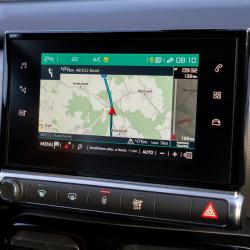The Benefits of Carpooling and How It Saves Fuel
Practical solutions to reduce individual carbon footprints and save money is more important than ever. One such solution, often overlooked but highly effective, is carpooling. This simple practice not only fosters a sense of community but also offers substantial benefits in terms of fuel conservation and environmental protection.
Fuel Efficiency and Cost Savings
Carpooling significantly enhances fuel efficiency, as it reduces the number of vehicles on the road. When multiple people share a ride, they collectively use less fuel compared to if each person drove separately. For instance, if a carpool consists of four people, and each person would otherwise drive their own vehicle, carpooling can potentially save up to 75% of fuel consumption for that group. This reduced need for fuel translates directly into cost savings, which can be particularly beneficial given the fluctuating and often high prices of gasoline.
Moreover, carpooling can reduce wear and tear on vehicles, leading to fewer maintenance costs over time. By sharing the responsibility of driving and distributing the mileage across fewer trips, car owners can prolong the life of their vehicle, further enhancing the economic benefits of carpooling.
Environmental Impact
Reducing the number of cars on the road decreases greenhouse gas emissions and air pollution. Transportation is one of the largest contributors to carbon emissions globally, and carpooling can play a critical role in mitigating this impact. A single carpooling arrangement can reduce a significant amount of pollutants that would otherwise be emitted into the atmosphere, contributing to cleaner air and a healthier environment.
Additionally, fewer vehicles on the road mean less traffic congestion, which not only reduces the time spent idling (and thus burning fuel) in traffic jams but also leads to more efficient travel overall. This reduction in traffic can further decrease emissions and improve air quality, creating a positive ripple effect on urban environments.
Social and Community Benefits
Beyond the environmental and economic advantages, carpooling offers substantial social benefits. It provides an opportunity for individuals to connect, fostering a sense of community and shared responsibility. Carpooling can also reduce the stress associated with daily commutes by allowing passengers to relax, converse, or catch up on reading while someone else drives.
In some regions, carpooling can offer additional perks, such as access to carpool lanes, which are typically less congested than regular lanes. This can result in shorter, more predictable commute times, contributing to a better work-life balance and overall quality of life.
How to Start Carpooling
Starting a carpool is relatively simple. Many workplaces and communities have existing carpool programs, or they provide platforms where individuals can connect with others looking to share rides. There are also numerous apps and online services designed to facilitate carpooling, making it easier than ever to coordinate schedules and routes.
To make carpooling successful, it's important to establish clear agreements among participants regarding driving schedules, routes, and costs. Open communication and mutual respect are key to maintaining a harmonious carpool group.
Conclusion
Carpooling is a practical, cost-effective, and environmentally friendly method of transportation that offers numerous benefits. By reducing fuel consumption, lowering emissions, and fostering community connections, carpooling represents a simple yet powerful tool in addressing some of today's most pressing challenges. As individuals and communities increasingly recognize these benefits, carpooling can play a critical role in creating a more sustainable and connected world.






















